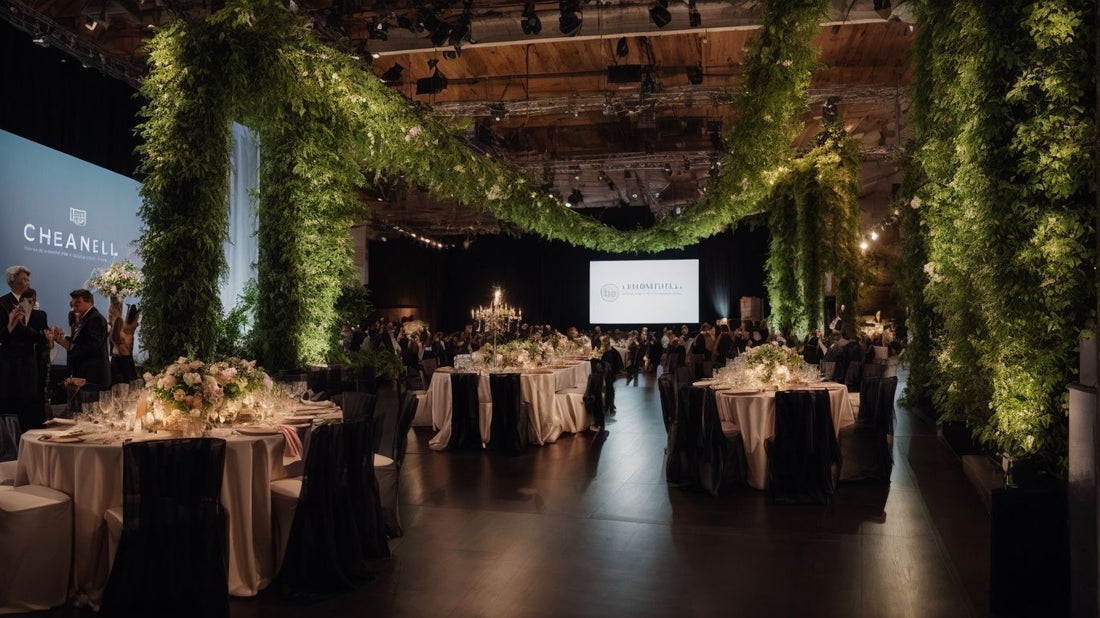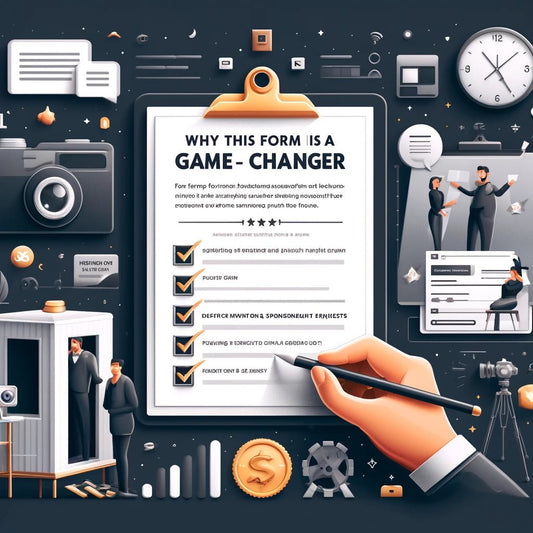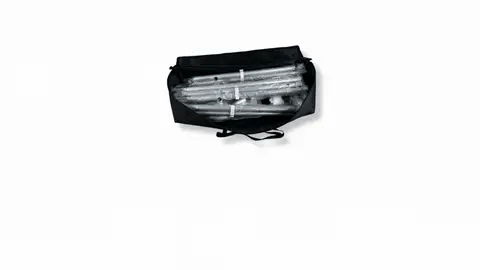
The Ultimate Guide to Corporate Event Logistics: Plan Successful Business Gatherings
Share
.jpg)
Corporate events play a crucial role in the business world, serving multiple purposes such as networking, training, product launches, and team building. To ensure the success of these events, efficient event logistics are essential. Event logistics involve the intricate planning and coordination of various elements to ensure a seamless and memorable experience for attendees. It encompasses everything from venue selection to transportation, budget management to technology support. The significance of event logistics in corporate events cannot be understated. Efficient logistical planning ensures that all aspects of the event run smoothly, creating a positive impression on participants and maximizing the event's objectives. This article will delve into the importance and key considerations of event logistics in corporate events, as well as explore the logistical aspects of event execution and troubleshooting. it will cover post-event logistics, including participant feedback collection and evaluating the overall success of the event. By understanding the intricacies of corporate event logistics, businesses can deliver exceptional and successful events that leave a lasting impact.
What Are Corporate Events?
Corporate events are gatherings or meetings that are organized by businesses or organizations for various purposes, such as promoting a new product, team building, or celebrating achievements. These events, also known as corporate events, are specifically designed to cater to the needs of the company. They can take many forms, including conferences, seminars, trade shows, product launches, and employee appreciation events. Corporate events provide a platform for networking, collaboration, and knowledge-sharing within the industry. To ensure the success of these events, companies often hire event planners to handle the logistics. Corporate events play a crucial role in enhancing the brand image, building relationships, and achieving objectives for businesses. So, what are corporate events? They are essential gatherings that businesses organize to achieve their goals.
Importance of Event Logistics in Corporate Events
The importance of event logistics in corporate events cannot be overstated. Event logistics play a crucial role in the success of corporate events. Effective planning and execution of logistical aspects such as venue selection, transportation, catering, and audiovisual setup are essential for a seamless and successful event. Proper event logistics ensure that all the necessary elements are in place, and that the event runs smoothly, creating a positive experience for attendees. It also helps in managing costs effectively and maximizing the impact of the event. Without proper event logistics, even the best-planned corporate event can fall short of expectations.
What is event logistics?
Event logistics refers to the detailed organization of all aspects related to planning, executing, and evaluating a corporate event. So, what is event logistics? Event logistics involves determining event objectives and requirements, selecting suitable venues, managing resources and budgets, arranging transportation and accommodation, and ensuring smooth event operations. Logistical aspects of corporate events encompass event setup and equipment, registration and check-in processes, food and beverage management, and technology and audio-visual support. Post-event logistics involve wrap-up and breakdown, collecting participant feedback, and evaluating success for improvement. Event logistics play a crucial role in creating a seamless attendee experience, meeting business goals, and adapting to changing circumstances. To ensure successful events, it is essential to work with certified experienced planners and trustworthy partners.
Why is event logistics crucial in corporate events?
Event logistics is crucial in corporate events because it ensures smooth operations, maximizes attendee experience, and achieves event objectives. Careful planning and organization are essential in determining event requirements and selecting suitable venues. Managing the event budget and resources is crucial for financial success. Transportation and accommodation arrangements guarantee smooth attendee travel. During the event, logistical aspects such as setup, registration, food and beverage management, and technology support contribute to a seamless experience. On-site coordination and troubleshooting handle unexpected situations. Post-event logistics involve wrap-up, participant feedback collection, and evaluating success for future improvements. Fact: Effective event logistics can boost attendee satisfaction by 82%.
Logistical Aspects of Corporate Event Execution
Get ready to dive into the logistical aspects of corporate event execution! We'll explore the nitty-gritty details of event setup and equipment, delve into the smooth registration and check-in process, uncover the secrets of flawless food and beverage management, and reveal the magic behind seamless technology and audio-visual support. Buckle up for a journey into the behind-the-scenes world of corporate event logistics where every little detail contributes to a successful and memorable experience.Event Setup and Equipment
| Event Setup | Equipment |
| Preparing the event space according to the event plan | Sound system |
| Arranging furniture and decor | Lighting equipment |
| Setting up signage and branding materials | Projection screens |
| Installing stages, podiums, and backdrops | Microphones |
| Providing power supply and electrical connections | Video cameras |
Registration and Check-in Process
The registration and check-in process is an essential component of managing corporate event logistics. It plays a crucial role in ensuring a smooth and efficient experience for attendees. Here are some key steps to consider when organizing this process:
1. Pre-event communication: It is important to communicate clear instructions to participants regarding the registration and check-in procedures. This includes providing all necessary forms or documents in advance, if applicable.
2. Online registration: Implementing a user-friendly online registration system is highly recommended. This not only allows attendees to provide the necessary information conveniently but also offers options for early check-in, making the entire process more streamlined.
3. On-site check-in: To facilitate a smooth flow, it is advisable to designate a dedicated check-in area with clearly marked signage. Assigning staff members to assist with the process and manage any queues can significantly reduce wait times.
4. Registration verification: To maintain the integrity of the event, it is crucial to collect and verify attendee information. This may involve checking identification or badges to ensure that only registered participants gain access.
5. Information collection: When planning for the event, it's beneficial to gather additional information from attendees, such as dietary restrictions or special requests. This proactive approach helps facilitate a more personalized and satisfactory experience during the event.
6. Badge and materials distribution: Providing attendees with event badges, agendas, and other relevant materials is an essential part of the check-in process. Clearly labeling the badges with identifiable information ensures smooth identification throughout the event.
7. Attendee support: It is important to have knowledgeable staff available to address any questions or concerns that may arise during the check-in process. Offering assistance to those who require special accommodations or additional support is crucial for creating a positive attendee experience.
Pro tip: To enhance efficiency and reduce manual work, make use of technology. Consider implementing mobile apps or self-check-in kiosks to streamline the registration and check-in process further.
Food and Beverage Management
Food and beverage management plays a vital role in the logistics of corporate events. It is essential to consider the following points in order to ensure a successful event:
- Menu Planning: When planning the menu, it is important to create a diverse range of options that caters to various dietary restrictions and preferences.
- Catering Services: Collaborate with reliable and experienced caterers who have the capability to handle the volume and demand of the event.
- Budgeting: Allocate a sufficient budget for food and beverage expenses, taking into account the number of attendees and the duration of the event.
- Service Efficiency: Carefully plan the layout and flow of food and beverage stations to minimize waiting times and ensure a smooth serving process.
- Beverage Options: Provide a wide range of beverage choices, including both alcoholic and non-alcoholic options, as well as specialty drinks.
- Allergen Awareness: Inform attendees about any allergens present in the menu items to ensure their safety and accommodate their specific dietary needs.
- Presentation: Pay attention to the presentation of both food and beverages, as it can greatly enhance the overall experience for attendees.
- Sustainability: Incorporate eco-friendly practices such as using reusable cutlery and plates, as well as sourcing locally produced food.
Technology and Audio-Visual Support
Technology and audio-visual support are essential for the success of corporate events. Investing in high-quality, reliable audio-visual equipment is crucial to ensure clear communication and engaging presentations. It's also important to hire skilled technicians who can handle the setup, troubleshooting, and operation of the technology to prevent any technical glitches. Additionally, incorporating virtual capabilities, such as virtual conferences or hybrid events, allows for reaching a wider audience and providing a seamless remote experience. Utilizing interactive solutions like live polling, Q&A sessions, and virtual networking platforms enhances attendee engagement. Furthermore, recording and livestreaming event sessions enable participants to access content later and extend the reach of the event. By prioritizing technology and audio-visual support, corporate events can deliver impactful experiences and effectively communicate key messages.
Ensuring Smooth Event Operations and Troubleshooting
Planning a flawless corporate event involves meticulous coordination and adept troubleshooting. In this section, we will uncover the secrets of ensuring smooth event operations and overcoming unexpected challenges. Discover the power of seamless on-site coordination and effective communication, as well as the essential skills needed to handle and resolve any unexpected situations or emergencies that may arise. Let's dive into the world of corporate event logistics, where success lies in expert execution and quick thinking.On-site Coordination and Communication
On-site coordination and communication are essential for the successful execution of corporate events. Here are important steps to ensure a smooth experience:
- Establish a clear chain of command and assign responsibilities to team members.
- Coordinate with venue staff and vendors to ensure all logistical details are in place.
- Set up a reliable communication system to keep everyone informed and connected during the event.
- Prepare a detailed schedule and share it with all stakeholders to ensure everyone is on the same page.
- Conduct regular meetings and briefings to address any issues or changes that may arise.
- Maintain open lines of communication to address attendees' needs and concerns effectively.
At a recent corporate conference, effective on-site coordination and communication ensured a seamless experience for attendees. The event team collaborated closely with the venue staff, ensuring all logistics, from room setups to audio-visual support, were executed flawlessly. Clear communication channels were established, allowing for quick and efficient problem-solving. Regular briefings kept all stakeholders informed of any adjustments or updates. As a result, the event ran smoothly, and attendees left with a positive experience and high satisfaction.
Handling Unexpected Situations and Emergencies
- When it comes to handling unexpected situations and emergencies in corporate events, prioritizing safety and well-being is crucial.
- Effective communication is key when it comes to handling unexpected situations and emergencies in corporate events. It is important to notify attendees promptly and provide clear instructions.
- To handle unexpected situations and emergencies, activate pre-planned and rehearsed emergency protocols.
- Coordinating with local authorities and emergency services is essential in managing unexpected situations and emergencies during corporate events.
- During unexpected situations and emergencies, offering support and assistance to affected attendees is important.
- Regular communication with event organizers, vendors, and stakeholders is necessary to keep them informed during unexpected situations and emergencies.
- After the event, it is crucial to conduct a thorough review to identify areas for improvement in emergency preparedness.
Post-Event Logistics and Evaluation
After the corporate event wraps up, it's time for the crucial phase of post-event logistics and evaluation. Discover how event wrap-up and breakdown, collecting participant feedback, and evaluating success play vital roles in identifying areas for improvement. With these key components, organizers can fine-tune future events, ensuring a seamless experience for attendees. So, let's dive into the essential steps that follow the event to optimize outcomes and enhance future corporate gatherings.Event Wrap-up and Breakdown
- Event wrap-up and breakdown are crucial stages in the corporate event planning process. They are essential for ensuring that all loose ends are tied up and the event is successfully concluded.
- Collecting Participant Feedback: To assess the satisfaction level of attendees and identify areas for improvement, it is important to gather feedback from participants during the event wrap-up and breakdown.
- Event Collateral Management: Properly storing and organizing event materials, such as banners, handouts, and promotional items, is a key step in the event wrap-up and breakdown process.
- Financial Reconciliation: During the event wrap-up and breakdown, it is necessary to review and reconcile the event budget, making sure that all expenses are accounted for and payments are settled.
- Vendor Settlement: Another crucial step in the event wrap-up and breakdown is settling outstanding payments with event vendors and ensuring that all contractual obligations have been met.
- Post-Event Analytics: To evaluate the success of the event, analyzing event data, such as attendance numbers and engagement metrics, is vital during the event wrap-up and breakdown.
- Document Lessons Learned: As part of the event wrap-up and breakdown, capturing key insights and areas for improvement will inform future event planning.
- Send Thank You Notes: Expressing appreciation to attendees, sponsors, and event team members for their contributions is a recommended action during the event wrap-up and breakdown.
- Prepare Post-Event Report: Summarizing the event's objectives, outcomes, and key highlights is an important task to share with stakeholders during the event wrap-up and breakdown.
- Plan for Follow-Up Actions: Identifying any necessary follow-up tasks, such as post-event marketing initiatives or customer relationship management activities, should be done during the event wrap-up and breakdown.
Collecting Participant Feedback
Collecting participant feedback is crucial in corporate events to evaluate their success and identify areas for improvement. Here are some steps to effectively collect participant feedback:
- Design a survey: Create a comprehensive questionnaire that covers different aspects of the event, such as content, speakers, logistics, and overall experience.
- Distribute the survey: Utilize online survey platforms or email to distribute the survey to participants promptly after the event.
- Incentivize participation: Offer incentives, such as exclusive content or discounts, to encourage participants to complete the survey.
- Analyze the feedback: Thoroughly analyze the feedback received to identify common themes and areas that require improvement.
- Take action: Use the feedback to make necessary changes and improvements for future events.
By collecting participant feedback, event organizers can enhance future events, meet attendee expectations, and achieve their business goals.
Evaluating Success and Identifying Areas for Improvement
Evaluating the success of a corporate event is crucial for identifying areas that need improvement in future events. It allows event planners to assess whether the event achieved its goals and if attendees had a positive experience.- Collecting participant feedback: Surveys or feedback forms can provide valuable insights into attendee satisfaction and suggestions for improvement.
- Evaluating event objectives: Assessing whether the event accomplished its intended purpose, such as generating leads or fostering networking opportunities.
- Measuring attendee engagement: Analyzing metrics like session attendance, interactions, and social media engagement can indicate the success of the event in engaging participants.
- Analyzing event data: Reviewing attendance numbers, revenue generated, and any logistical challenges can provide insights into overall event success.
Frequently Asked Questions
1. How should I plan for international travel logistics for a corporate event?
When planning for international travel logistics, consider factors such as visa requirements, health and safety guidelines, and transportation options. It is important to work with a travel management company that has experience in handling international events and can ensure smooth travel arrangements for attendees, speakers, and sponsors.
2. What are some key considerations when organizing a networking reception for a corporate event?
When organizing a networking reception, consider the venue's capacity, layout, and amenities. You should also plan for food and beverage options that cater to diverse preferences. Clear signage and designated areas for networking can prevent guest confusion and facilitate meaningful interactions during the event.
3. How should I approach room placements for a corporate event?
When arranging room placements, it is essential to consider the estimated attendance and type of event activities. Map out the event space and determine the appropriate seating arrangement or room setups to accommodate the desired interactions or presentations. Clear communication and coordination with the venue can help ensure smooth logistics for room placements.
4. How can I make effective logistics choices for my corporate event?
To make effective logistics choices, start by understanding the event goals and the desired attendee experience. Consider tangible aspects like venue capacity, parking requirements, and technical support services. Additionally, pay attention to intangible aspects such as the event value proposition and the overall atmosphere you want to create. Always adapt to changes and unforeseen circumstances that may require adjustments in your logistics plan.
5. How can I ensure a smooth experience for attendees through event logistics?
To ensure a smooth experience for attendees, it is crucial to have meticulous agendas, clear signage, and dedicated task owners for each logistics aspect of the event. Using a reliable registration platform can help manage attendee information and preferences. Being proactive in addressing any concerns or issues that may arise during the event can contribute to a positive attendee experience.
6. How does event experience insurance benefit corporate event logistics and travel management?
Event experience insurance, offered by companies like MGME, provides peace of mind by covering unforeseen circumstances and ensuring worry-free planning and execution. This insurance can help manage potential risks and costs associated with logistics gone awry or unexpected changes. It allows event planners to focus on creating a seamless event experience while minimizing potential disruptions.






